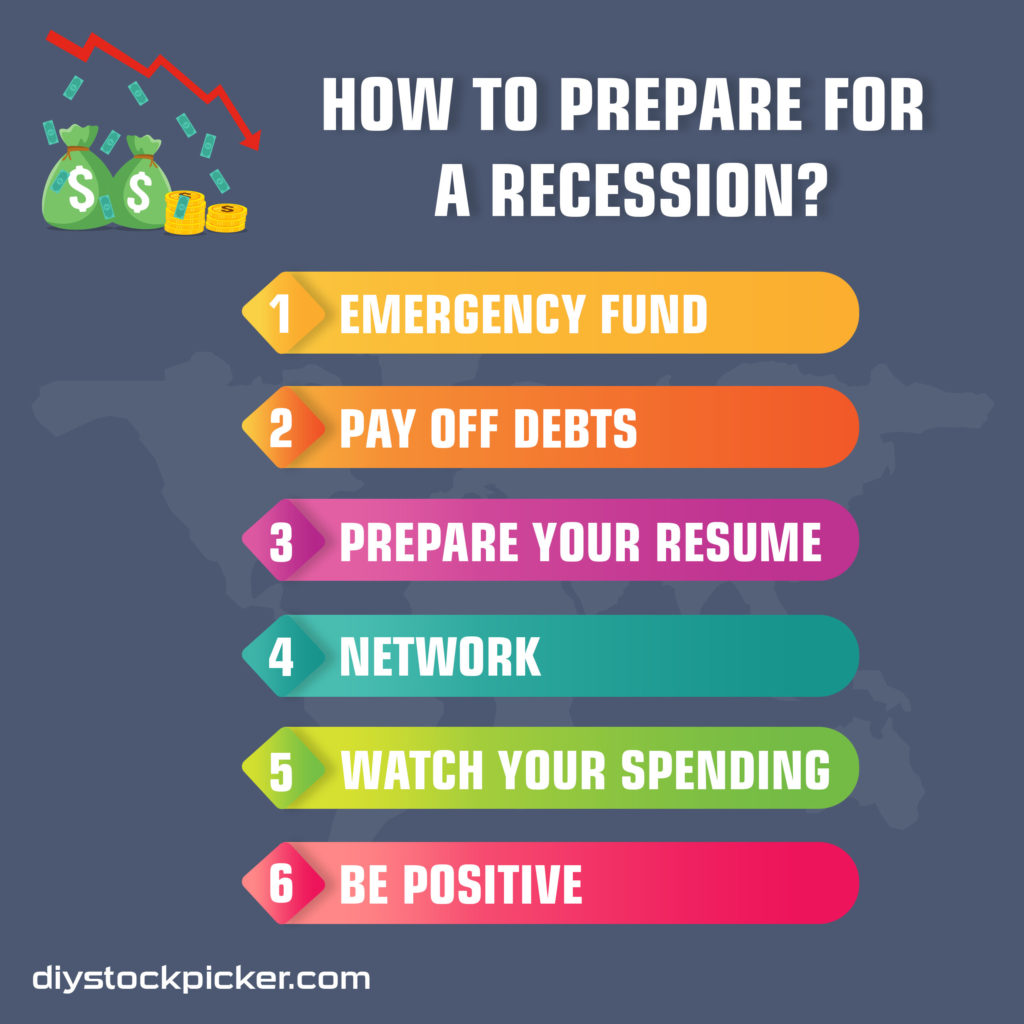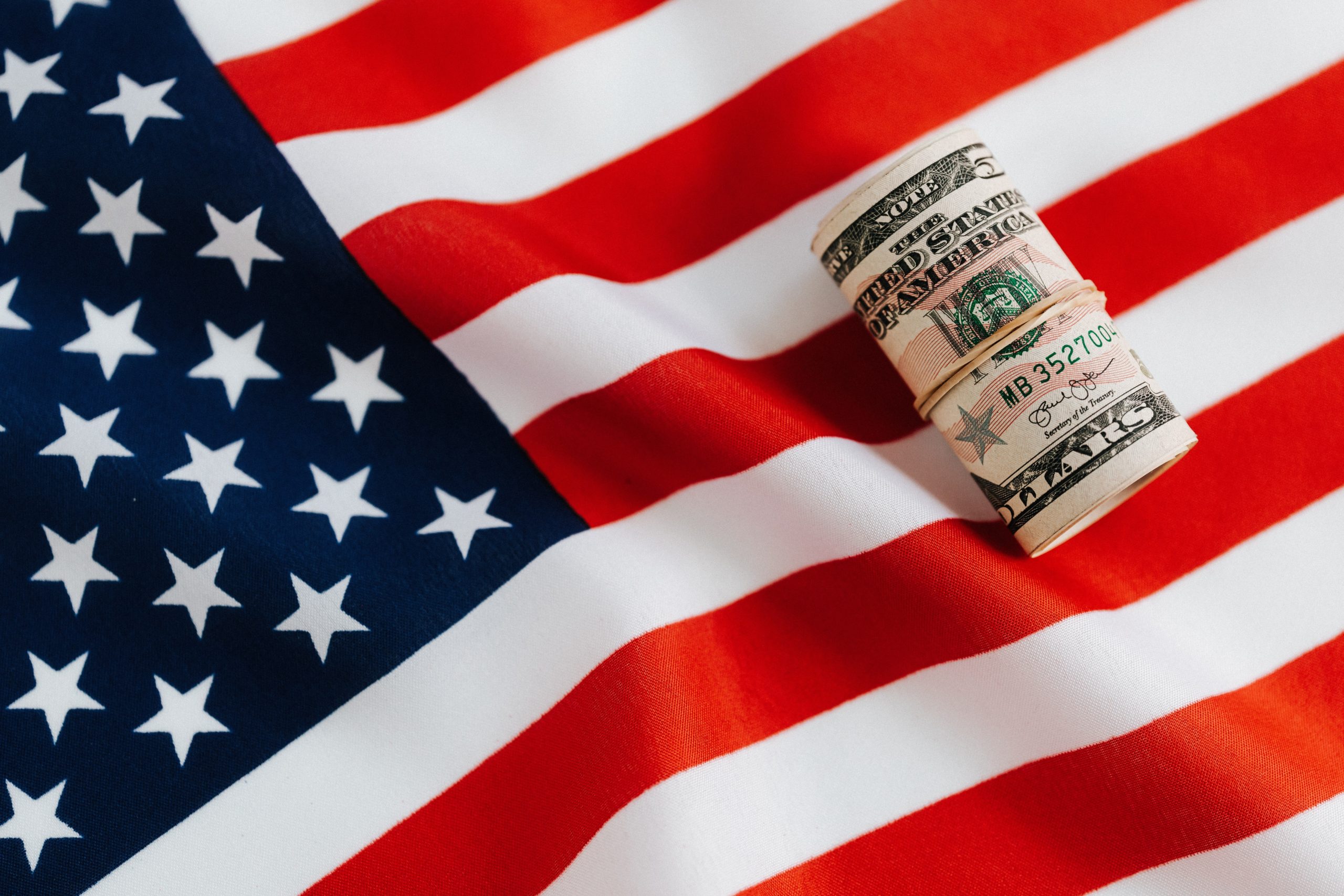To prepare for a recession needs planning and strategy. Why do we prepare for a recession now? Because the economic indicators point that we are already in the midst of it. The stock market paints a completely different story though and let this not give you false confidence.
Key economic indicators to predict the health of the economy
Take a look at the following key economic indicators:
- US Gross Domestic Product (GDP) decreased at an annual rate of 32.9 percent in the second quarter of 2020 according to the U.S. Bureau of Economic Analysis.
- 16 million Americans are unemployed according to the U.S. Bureau of Labor Statistics report.
- The extra $600 unemployment benefits provided by the Federal government expired last week leaving a lot of families precariously positioned in terms of their finances.
- The US government helped out the airlines by providing $25 billion bailout money as part of the Coronavirus Aid, Relief, and Economic Security Act (Cares Act) on agreement that they would not layoff their workers. This provision expires on October 1, 2020 and airlines executives have stated that there would be at least a third of jobs lost in the sector.
- Due to the lockdowns and public health restrictions, the hardest hit sectors are travel, tourism, hospitality and a lot of jobs are not coming back.
- The US national debt stands at a staggering $26.5 Trillion as of July 31, 2020.
- 32 percent of Americans did not make rent or mortgage payments during July.
- Several iconic companies have filed for bankruptcy (J.C. Penney, Neiman Marcus, Gold’s gym) and a lot of public companies with leveraged balance sheets are on the verge.
History of Recessions
There were 11 recessions since the World war II and most of them averaged about a year.
The burst of the housing bubble due to the subprime mortgage crisis and the dot com bubble are fresh in the minds of a lot of people. Euphoric events usually lead to recessions when investors pool their money into the riskiest investing instruments. The one we are seeing now due to the novel Coronavirus is a black swan event (unpredictable event with severe consequences).
Usually during recessions, the markets have a free fall and asset prices (housing, stocks) go down. This happened during March 2020 but due to the swift action by the Federal government and the Federal Reserve, this catastrophe was averted. However, there are a lot of lives that are impacted and there is no certainty that the markets have seen this through. There may be a major correction lurking in the shadows.
How do you prepare for a recession?
It is an extremely stressful time to face a recession but with the right preparation, you may be able to even take advantage and purchase assets at fire sale prices.

Emergency Fund
At the outset, before making any investments or paying down any debts, everyone should save at least 3 months of living expenses in a bank account. This is to face any loss of regular monthly income. This gives a lot of breathing space and helps in approaching financial adversities with the right frame of mind. Having an emergency fund also keeps one away from high interest credit card or personal loans.
Pay off debts
The next step is to pay off high interest credit card debts and auto loans. The only debt you can have is your mortgage and only if the monthly payment is less than 40% of your take home pay. Compounding is rightly the eighth wonder but it is very important to be on the right side of the equation. If you have assets that compound, you will have a great financial life but if you have liabilities that compound, you can never get ahead financially. There are different strategies for paying off debt like the snowball method or paying off the highest interest debt first. Whatever works for you, go for it and be focused and never let go until you pay off the last penny of debt.
Prepare your Resume
If you have been working at the same place for more than 2 years, chances are that your resume is pretty outdated. Now is the time to update your resume and float it in the market. Do not take anything for granted regarding your employment. If your skills are outdated, go through the job postings relevant to your specialty and find out what skills are in demand. There is no need to break the bank in updating your skills. Udemy has the most updated courses for about 10 dollars.
Network
Go through your contacts and call and speak to each one of them. Find out how they are doing and let them know that you are open to new opportunities. Everyone has a unique perspective and you will definitely learn a lot. Connect with people on LinkedIn. Go through Craigslist job boards. Sign up on Meetup.com and look for networking events happening in your area. Meetups are online these days but still you will have a chance to interact with others. A lot of jobs are still filled by means of references.
Watch your spending
If you do not have a monthly budget, now is the time to prepare one. Make sure you get your spouse onboard with the plan. Look for monthly subscriptions that you do not use and take them off the autopay and cancel them. If you are spending money on cable, cut the cord now and subscribe to the streaming services. If you eat out a lot, prepare your meals at home. Not only is it healthy but also saves a lot of money.
Be Positive
This too shall pass. Do not stress over anything. Stay calm and always be positive. A lot of people are feeling stress and anxiety due to the lockdowns and quarantine measures. Do not fall prey to negativity. Always stay positive and try to provide comfort and value to the people around you. We tend to look for peace of mind and happiness in material things but the real happiness comes from making others happy.
Summary
Preparation and planning are the key to seeing through any recession. Denial only increases the downside. Debt based economies always go through cycles. There will be ups and downs. What is important is be prepared to see off the downs and have the courage to take advantage of the opportunities that are presented during these times.

